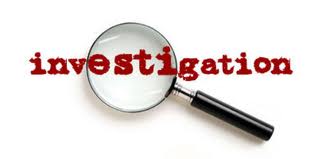
Nelson P. Thom
OPINION: PORT MORESBY (PNG Media Critic Blog/Pacific Media Watch): Papua New Guinea has one of the most vibrant media industries in the Pacific - excluding Australia and New Zealand - if not the most vibrant.
We have more radio stations, Newspapers and Television stations compared to any of the Island countries in the Pacific. A good thing to be right up there, but a bad thing if we cannot lead the way, to break stride and explore new boundaries.
In developing countries like PNG and the rest of the Pacific, simple journalism in any medium works out fine. Nothing complicated, just simple writing and the lot can lure your audience to your medium. I have observed that everything simple journalism has been working or will work well in a fast developing country like PNG. However, some of these are either not working or not present at all.
I want to discuss investigative journalism in PNG and whether or not we as journalists and mediums have encouraged or allowed this important method of reporting to occur freely. Every now and then, there will be a story in the papers, radio or TV that is an investigate journalistic piece. But you look at PNG, with the rate of corruption, and the bad things individuals are pursuing for their own benefit.
And we simply ask "How did they do that? Is that legal or right? Are the people aware of such a thing? Should I report about it? Should I dig deep and ask the tough questions?
PNG's media industry is one of the most freest in the region, without much scrutiny, the stories get a run. Despite certain barrings of the media, we still get a run, so why is that we still lack that important piece of writing. Before I go on lets just define Investigative Journalism.
What is Investigative Journalism?
According to Wikipedia Investigative Journalism means:
A form of journalism in which reporters deeply investigate a single topic of interest, often involving crime, political corruption, or corporate wrongdoing. An investigative journalist may spend months or years researching and preparing a report. Most investigative journalism is done by newspapers, wire services and freelance journalists. Practitioners sometimes use the terms "watchdog journalism" or "accountability reporting."
Note the bold text, Crime, Political Corruption, or Corporate wrongdoing. Are these all present in PNG and have we spent time to deeply investigate such reports or stories that are published every now and then in the mediums? From my point of view, we have not down enough, we still leave many questions unanswered, and we leave our audience making assumptions of what really is the answer to their questions.
Why have we not done enough investigative journalism? There may be many questions and different answers. But we have a freedom, none like any other in the region. Our people are suffering, we are suffering! The truth is out there but we don't want to know, or we do want too but not doing enough to get it. Our institutions, must encourage investigative journalism in the young up and coming journalists.
I can sit here and write about this but nothing is going to happen, we need to get out there and do something to promote more investigative journalism. I can admit that I can't ask the tough questions but there are some journalists and reporters out there that can and they must be given every opportunity to do so.
I can answer some of the questions on why Investigative Journalism is lacking in PNG but like I have mentioned it would be different to others. So I leave it open for discussions.
Nelson B. Thom is a University of Papua New Guinea journalism and public relations graduate. He publishes the PNG Media Critic blog.



